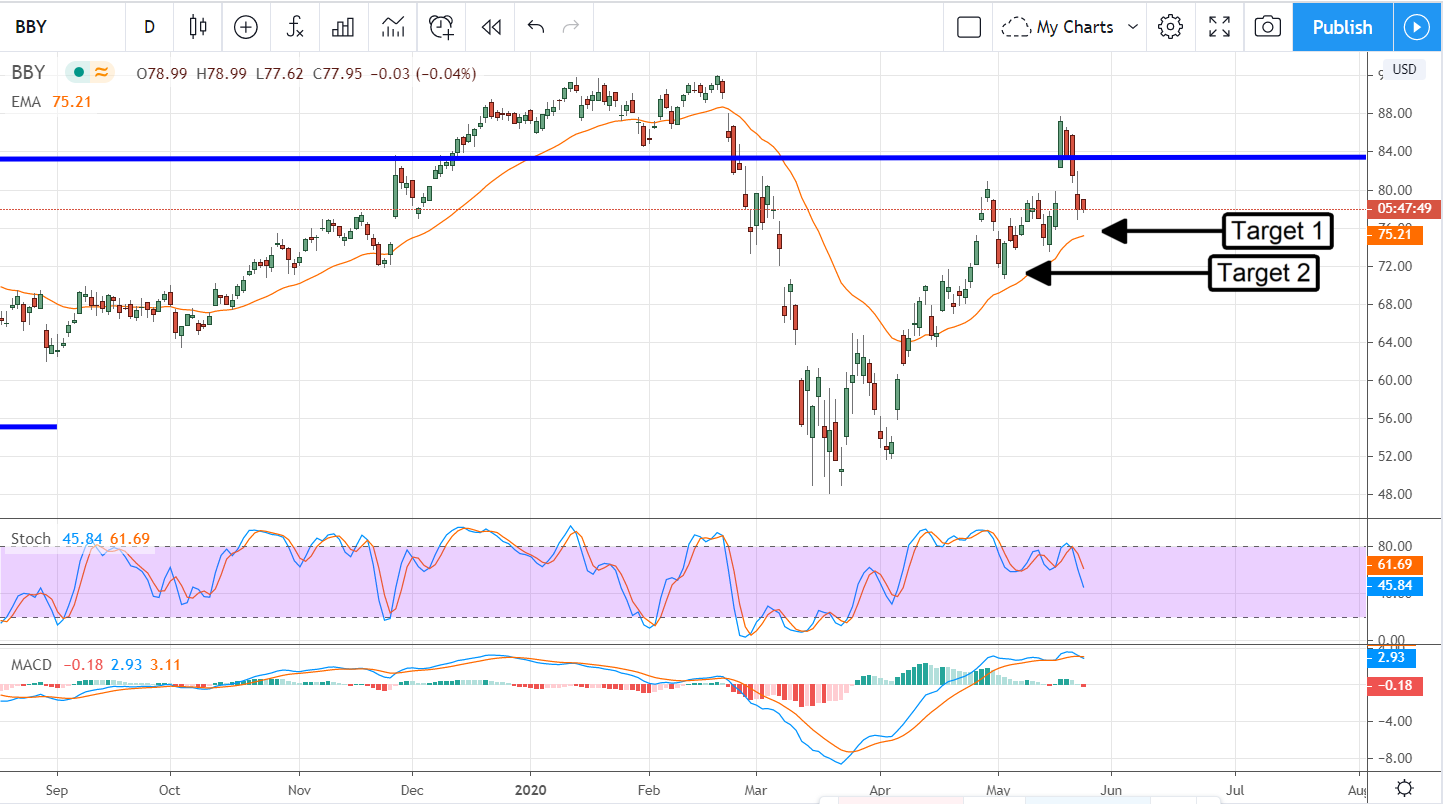I’ve Said It Before, It Pays To Be The Middleman
I’ve said it before, that it pays to be the middleman, and the results from Best Buy (BBY) underscore that thought. The company is a retailer of high-dollar and big-box technology and household items, products that have suddenly come into high demand. Admittedly, Best Buy has had some struggles over the past few years but one thing has been constant. The company has proven it can grow revenue and be a good dividend payer.
The Q1 Results Are Good, Best Buy Can Compete
The Q1 results were a mixed bag but show the company can still compete in today’s post-pandemic world. If you think about it, it shouldn’t be a surprise. One of the strongest trends in the market today is the work-at-home/play-at-home stocks that are being boosted by virally-induced demand. Best Buy, as the local retailer of such items, is the go-to spot for many Americans because it provides instant gratification.
On the top line, revenue fell by -6.3% from the previous year but that figure is better than expected by 300 basis points. On the bottom line, both GAAP and Adj EPS beat consensus and by substantial margins. Comps, a measure of organic strength, came in at -5% versus the -10% the analysts had projected.
Part of the company’s success can be attributed to CEO Corie Barry’s decision to alter the way Best Buy operates. Instead of metering traffic or capitalizing on eCommerce/curbside pickup Best Buy chose to adopt an appointment-only model. CEO Barry notes that impulse buys are not characteristic of the company’s customers as most purchases are large-ticket items. By allowing customers to come in and speak to the pro’s they are better served and store traffic is cut to a minimum.
Notably, during the last 6 weeks of the period, the period most impacted by the shut-downs, Best Buy was able to pull in 81% of the previous year’s revenue. This data not only underscores the company’s ability to compete in today’s market but highlights the strength in the first six weeks.
Best Buy Is A Dividend Grower, And A Value
Best Buy isn’t what I would call a high-profile dividend name but when you look at the metrics maybe it should be. The company is yielding just over 2.80% at today’s prices and the payout is safe. The payout ratio is running at what I consider to be a cool 43% and that includes an expectation of EPS decline in calendar 2020. Looking forward, both revenue and EPS growth is expected to resume more normalized levels as soon as next year bringing the ratio down to the 35% range.
As for debt, the company is virtually debt-free, has a strong cash and free-cash-flow position, and its load is well-covered. Looking forward, the company’s 16-year history of aggressive distribution increases is very likely to continue. The five-year distribution CAGR is running over 23% which equals $0.506 or about 60 basis points of yield.
In terms of value, all other dividend-growth stocks in the consumer category that are even closely comparable are trading at much higher multiples. Best Buy is trading near 15X its forward earnings while the broad market S&P 500 is trading near 20.5X earnings.
Big box stores Target and Walmart are trading near 24X their earnings. The dividend-growing pandemically-insulated Home Depot and Lowe’s are trading at 24X and 18X their earnings. Any way you slice it Best Buy is set up for a multiple-expansion, the question is how many multiples will it gain?
The Technical Outlook: Bullish … But
The technical outlook for Best Buy is bullish. The stock has been trading within a large, secular consolidation range alongside the broad market for several years. The correction took prices down to the bottom of that range where they made a strong bounce. The long-term outlook is bullish and supported by a growth story, a dividend, and an acceleration of secular trends so I expect new highs will come.
In the near term, the stock has hit resistance at the pre-correction price point and sparked a round of profit-taking. Investors looking to get into this stock may want to wait for support to confirm before initiating any purchases. The first target for support, if the current levels do not hold, is near the short-term moving average and the $75 level.

Before you make your next trade, you'll want to hear this.
MarketBeat keeps track of Wall Street's top-rated and best performing research analysts and the stocks they recommend to their clients on a daily basis.
Our team has identified the five stocks that top analysts are quietly whispering to their clients to buy now before the broader market catches on... and none of the big name stocks were on the list.
They believe these five stocks are the five best companies for investors to buy now...
See The Five Stocks Here
Unlock your free copy of MarketBeat's comprehensive guide to pot stock investing and discover which cannabis companies are poised for growth. Plus, you'll get exclusive access to our daily newsletter with expert stock recommendations from Wall Street's top analysts.
Get This Free Report
Like this article? Share it with a colleague.
Link copied to clipboard.